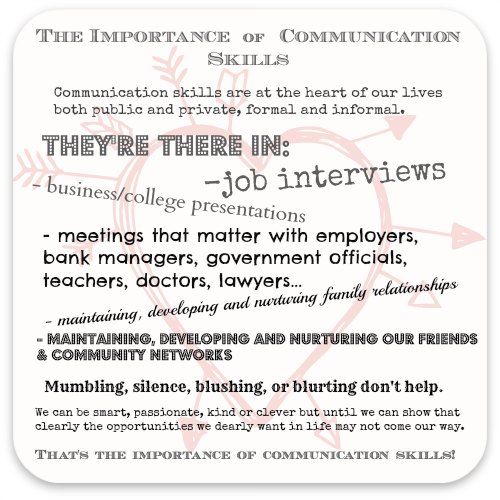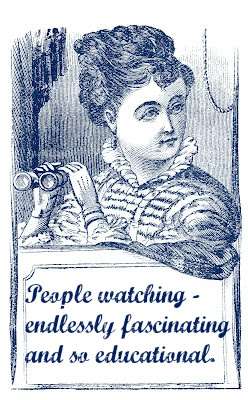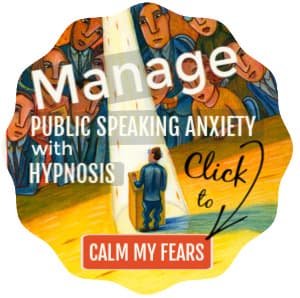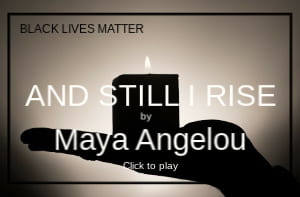The importance of communications skills
5 steps to improve face-to-face communication
|
The importance of communication skills is a truism - one of those statements impossible to disagree with. It's as obviously true as "grass is green" or the "world is round". We know communication is a key ingredient in realizing a person's fullest potential. |
 |
The life you live is shaped by your communication skills
It doesn't matter who we are, what we do or even where we are. Our communication skills, good, or could-be-better, are going to shape our lives.
We can be smart, passionate, kind or clever. However until we can communicate that clearly the opportunities we want may not come our way. Hence this page to help build good interpersonal skills.
5 strategies for improving communication skills
Quick links to help you move around this long page easily
The five strategies are to:
4. Use manners
Finding the balance
Between the two extremes: being either awkwardly
shy or boisterously loud, is a balance that can be learned and it's in
that balanced middle ground you'll find consistently successful
communication skills. And that is great news for those of us, myself
included, who have to consciously work at communicating effectively.
Understanding the basis of face-to face communication
Face to face communication, the daily interaction with our friends, family, work colleagues...anybody we meet, is a mix of two parts.

Here's an introduction to understanding body language if you're unfamiliar with the concept.
Part one
Part one is non-verbal communication. It's what we say with our body, commonly called body language.
Part two
Part two is verbal communication or the words we speak.
Blend both of them and we have the mix through which the world experiences us.
The 5 steps below cover both aspects: verbal and non-verbal communication.
Improving communication skills in 5 steps
Step one: body language
Do you understand what your body is saying.
Does it speak louder than your words?
Is what you do with your body in harmony with what you're saying?
Confidence (and the lack of it) is expressed by how we stand, walk, hold our heads...
Everything we do with our body is a clue for others to interpret.
Slumped shoulders, a shuffling gait, lowered eyes, a limp handshake, lack of eye contact; all can be seen as lacking in confidence.
In
important meetings how we present ourselves counts. First impressions
matter. Developing an awareness of what you're saying non-verbally is
vital if you want to understand how you are habitually communicating.
Check out this page on teaching yourself the basics of body language.
Become a people watcher!
I don't mean start staring rudely but I do mean become aware of what others are telling you about themselves without words.
Examine your responses to what you're noticing.
What judgments have you made based solely on your interpretation of their body language?
Have you decided that person is arrogant, this man is confident, and that women is friendly?
You've been judging people this way all your
life but now you are doing it consciously. This process of judging is exactly what other people do in reaction to you, to your body language.
Step two: becoming aware of your voice
What does your voice say to those who hear it?
You're probably familiar with the idea that what we look like or how we present ourselves is a critical part of the mix that determines how other people respond to us.
Dress inappropriately for an occasion and you'll feel the result of your misunderstanding. What many people don't understand is that we unconsciously react in a similar way to voices.
They're responding to 'voice image' and it's not about the words we say but HOW we say them. The link will take you to a page explaining the concept more fully.
You'll see that voice or vocal image is the not-so-secret secret behind people who work with their voices professionally. They understand how vocal variety (pitch, tone, pace, volume, clarity) combine to create impressions in listener's ears. You can understand that too.
You do not have to be the victim of your voice.
Step three: active listening
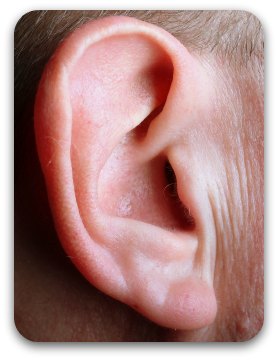
One of the most overlooked elements of good face to face communication is active or effective listening.
Most of us know what it's like to be interrupted, talked over, ignored and misinterpreted because people have made their own assumptions about what you said.
All of these experiences illustrate shoddy listening skills and they lead directly to frustration, resentment and poor decision making.
To actively listen means putting aside the temptation to push your own thoughts, feelings or opinions on others and to allow room for real conversation - a mutual exchange of ideas.
Click the link to find out more about effective listening and how to practice it.
Step four: using manners
 Cover: Rhymes for Kindly Children (1916)
Cover: Rhymes for Kindly Children (1916)An understanding of what is considered polite or the right way to behave in whatever social situation you encounter helps create a favorable first impression. Manners can open doors that otherwise might remain closed.
Through knowledge you can avoid blunders. If you
truly don't know what good manners are for a particular situation, ask
someone who you know will tell the right way to behave BEFORE you go to
the meeting, make the phone call ...
For example:
You are being interviewed for a job. You arrive and have to wait a while.
- Do you make personal calls on your cell phone while you are waiting?
- When you are having the interview do you call the interviewer by their first name?
- When the interview is concluded, do you stand, shake the interviewer's hand and thank them for the time they've given you?
Remember what can appear easy-going and casual in one situation can appear thoughtless and rude in another. It is best find out what is expected and deliver it. Your manners or lack of them are part of the overall communication bundle.
And the answers to the three questions?
It would be considered rude
to conduct private phone calls in someone else's office, you don't
presume to call the interviewer by their first name and yes, you do
thank the interviewer for giving you their time.
Step five: talking - the art of conversation
Good verbal communication or conversation skills when mixed with confident body language, manners, an awareness of your voice and active listening will optimize any opportunities open to you.
How do you begin a conversation with someone you don't know?
If you been habitually shy and have waited for others to talk to you before speaking, then it's quite likely that you've either missed out on opportunities completely or have been unable to maximize the openings you've been given.
Conversation starters
Here are some pointers to practice. Like most new things they will feel a little strange at first.
Once you've discovered you can use them successfully you'll gain so much confidence.
Give them a go.
 Postcard c.1910
Postcard c.1910Being shy, tongue tied or awkward does not have to be a life-long sentence.
You can, if you want to, grow out of it. I know because I did it myself!
Practice asking non-invasive open-ended questions fitting your social setting
Example:
The setting is conference. It's coffee break time and there are many new people to meet. You'd especially like to talk to the guy you heard speaking earlier about little blue widgets. They've been a passion of yours for awhile.
A conversation opener might go like this:
"Hi, I'm Fred from XYC Company in Toronto. I really liked your talk, particularly the bit about little blue widgets. What else can you tell me about them? I'm keen to hear what you've got to say."
In this scenario you've embodied your question with personal information (your name, company and place of work), given a sincere compliment, (I really liked your talk.), and asked for more information. It would be hard to refuse! Most people will talk about what they're interested in willingly.
Making compliments work for you
In the example above there was a compliment combined with the question.
The compliment has the effect of warming the person you're talking to. It shows you've noticed something admirable about them and it makes them feel good. As a consequence they are more likely to engage in conversation with you.
Giving a sincere compliment works. Take care though to keep them appropriate and genuine.
Here's an example of what not to do:
The setting is your new place of work. The girl in the cubicle next to yours has long slender legs.
"Hi! You've got fabulous legs! What do you think about doing away with the wall?"
This approach is unlikely to win you a friend. It's too much, too personal and too fast. You need to be aware of gender, cultural differences and the social nuances you're operating in. Practice giving compliments but make sure they're "safe".
Demonstrating competence
Once you have your listening skills honed, demonstrate that you've actively heard the person you're talking to by:
- using their name correctly
- referring back to small details they mentioned
- paraphrasing what they said in your own words
- asking for clarification if you need it
For eg."I didn't quite understand what you meant by XXX. Could you explain it another way?" - asking for affirmation that your understanding of what was told to you is correct.
For eg. "Have I got that right?" - These
last two points are particularly important in situations like business
meetings or job interviews where mutual understanding is crucial.
Gather up a list of neutral topics that most people can easily talk about
Often these subjects are classified as "small talk" and sometimes are despised for that. However small talk has a way of becoming meaningful BIG talk if you let it.
The job of a small talk topic is to gently ease the way open for something more. If it doesn't happen, it doesn't matter. You can move on but if the conversation becomes mutually interesting you can continue it.
Again depending on context safe or neutral topics are weather, sports, news, family events, traffic, children, work and seasonal happenings.
Example:
"I'm really looking forward to Christmas. We're going to XXX this year. What are you planning to do?"
Conversation starters
Here's a useful list by AJA Frost from an article published by career advice specialists at The Muse: 48 Questions That'll Make Awkward Small Talk So Much Easier.
Observe successful conversationalists
What do they do?
How do they move from one conversation to another?
How do they open a new conversation?
How do they close one without appearing rude or abrupt?
How do they join a conversation?
Learn from them.
I have a close friend whose work is closely aligned with her greatest
skill, making people feel good about themselves. She's naturally
friendly and always interested in whomever she's talking to. Watching
her in action is watching all of these five steps refined to gracious
perfection: she listens, she asks questions, and she compliments. Her voice,
her body language and her manners, are excellent. Through observation I've
been able to learn skills I didn't naturally acquire as part of growing
up.
There you have it -
How to improve your communication skills in 5 steps:
- Understand the role of body language
- Become aware of the effect of your habitual speaking voice
- Learn to actively listen
- Use good manners
- Practice conversational skills
You can realize your full potential and achieve it through understanding the importance of communication skills.
